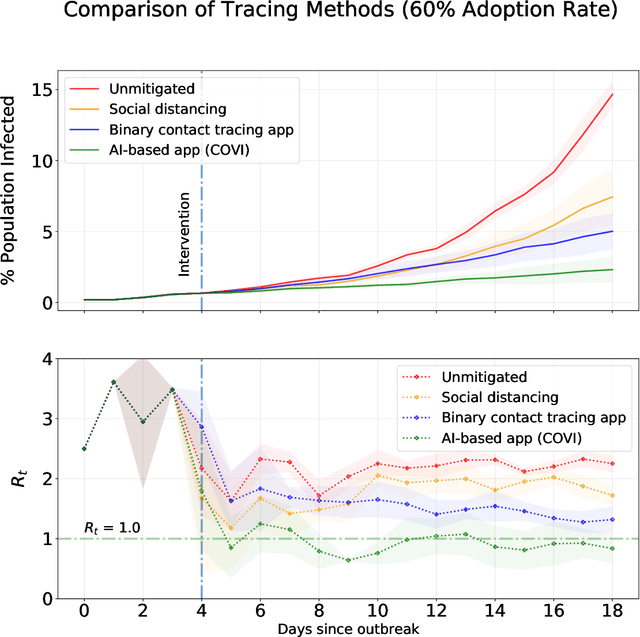COVI White Paper
Paper and Code
May 18, 2020
The SARS-CoV-2 (Covid-19) pandemic has caused significant strain on public health institutions around the world. Contact tracing is an essential tool to change the course of the Covid-19 pandemic. Manual contact tracing of Covid-19 cases has significant challenges that limit the ability of public health authorities to minimize community infections. Personalized peer-to-peer contact tracing through the use of mobile apps has the potential to shift the paradigm. Some countries have deployed centralized tracking systems, but more privacy-protecting decentralized systems offer much of the same benefit without concentrating data in the hands of a state authority or for-profit corporations. Machine learning methods can circumvent some of the limitations of standard digital tracing by incorporating many clues and their uncertainty into a more graded and precise estimation of infection risk. The estimated risk can provide early risk awareness, personalized recommendations and relevant information to the user. Finally, non-identifying risk data can inform epidemiological models trained jointly with the machine learning predictor. These models can provide statistical evidence for the importance of factors involved in disease transmission. They can also be used to monitor, evaluate and optimize health policy and (de)confinement scenarios according to medical and economic productivity indicators. However, such a strategy based on mobile apps and machine learning should proactively mitigate potential ethical and privacy risks, which could have substantial impacts on society (not only impacts on health but also impacts such as stigmatization and abuse of personal data). Here, we present an overview of the rationale, design, ethical considerations and privacy strategy of `COVI,' a Covid-19 public peer-to-peer contact tracing and risk awareness mobile application developed in Canada.
 Add to Chrome
Add to Chrome Add to Firefox
Add to Firefox Add to Edge
Add to Edge